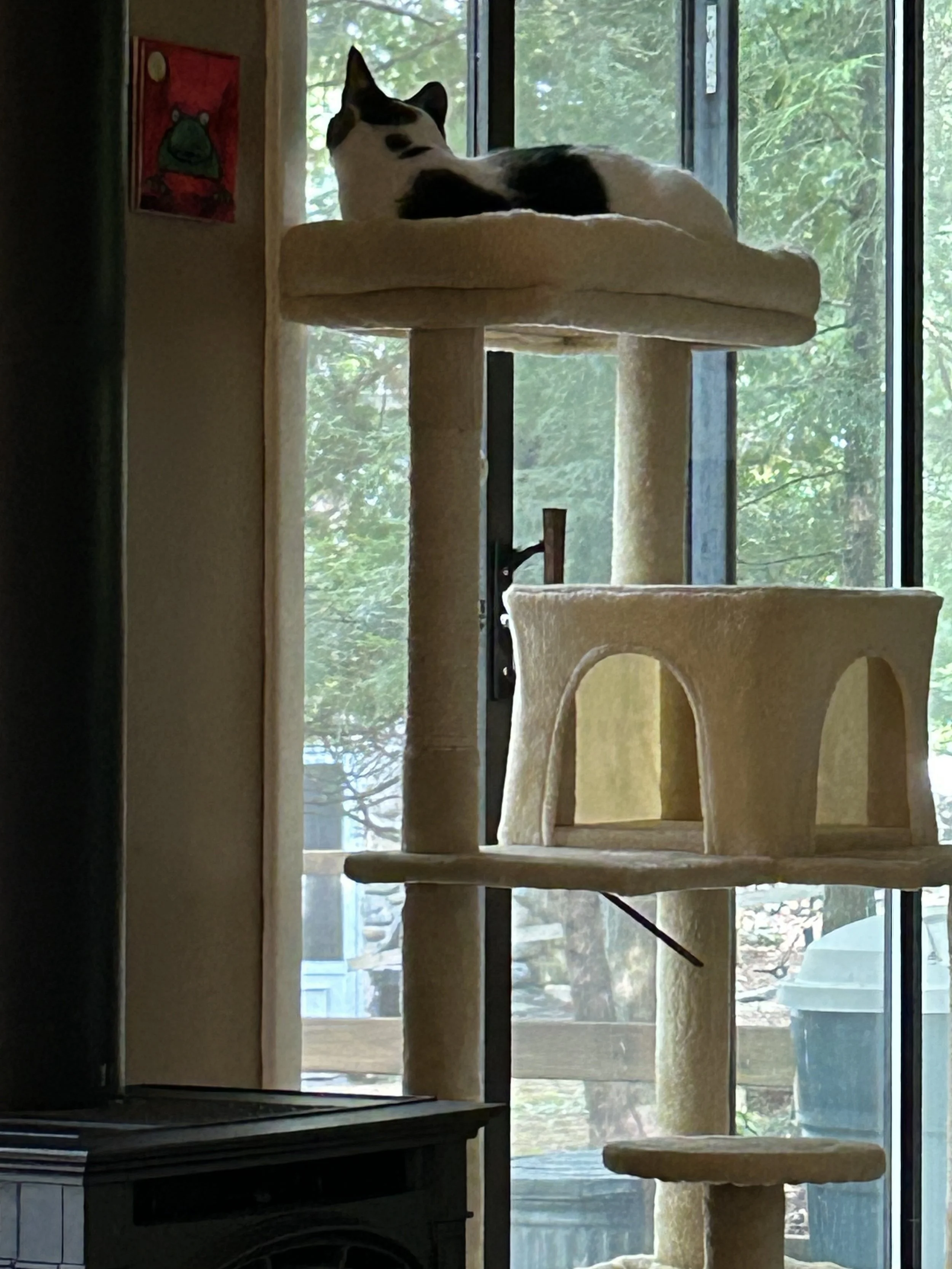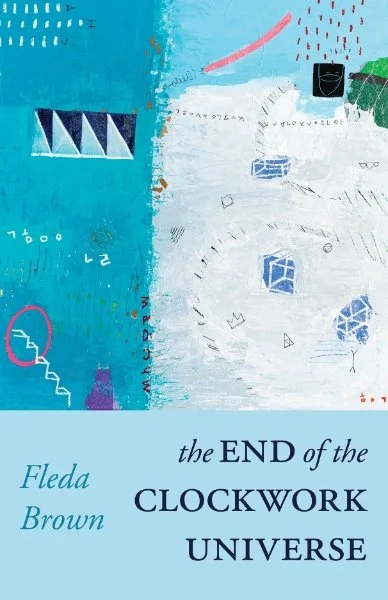Hot! We now have ceiling fans in every room of the two cottages, minus one, which will happen as soon as the electrician can get to it. And, with whatever’s going on with my hip, I can’t swim or even walk far without pain. My MRI and x-ray is coming up next week, thank goodness.
Nonetheless, I’d rather be here than anywhere in the summer. The breezes, when they come, have been glorious. And you should hear the goldfinches on the feeder, loud little buggers. And we’re still hearing Loons. I thought they’d be gone by now. Ollie is doing well here this summer. He likes his gigantic cat perch!
I thought I’d say a few words about The End of the Clockwork Universe since it’s available now on pre-order. Even online from Walmart! I Googled it. AI muscled its way in immediately to tell me that “Fleda Brown's book, ‘The End of the Clockwork Universe,’ uses the concept as a metaphor for exploring the mysteries of time, perception, and the human experience, weaving together scientific concepts with personal reflection.” The AI fairy says more things, no doubt gleaned from Carnegie Mellon’s site.
It's true that if you back off, the universe seems to tick like a clock. Sir Isaac Newton saw the planets moving in predictable and orderly ways; and small bodies, atoms, the same. Tick-tock. Then came Einstein. Oh no, time and space are relative to the observer! Then came Heisenberg, Oh no, you can’t even pin down the position and momentum of a particle simultaneously! It was the end of the clockwork universe.
Here we are, floating in a universe our minds can’t fathom. Haul out the poems! The art! The music! Don’t come in too close; don’t use an electron microscope. Don’t get too far away and lose the human tears, human joy. Keep your feet on the ground, knowing that “ground” itself is an illusion. But that doesn’t matter. It’s good for dancing on.
Parts of a poem, “Sunday Morning,” kind of a prologue, go:
Exactly no one knows what happens
inside an atom, do they?
Electrons whiz around a tiny nucleus.
A lot of gaps in there.
No one knows how quarks work
inside the protons and neutrons, either.
and
What if the Big Bang turned around
to see itself coming? Stories that appeared to be true
would look different from there.
What else? I give my doll a Tony Home Permanent, I cut out paper dolls, I hit a wild turkey in my car, I go for walks (when my back was better). I see stuff. I walk along behind the hospital, the same hospital where I have a scan where cancer is discovered in my breast.
The big long poem in the book is “Ever Fixéd Mark,” the story of Alexander Grothendieck (1928-2014), possibly the greatest mathematic /scientific genius ever, who at the age of 42 abandoned his work to live as a hermit. I read about him in When We Cease to Understand the World, by Benjamin LaBatut.
Grothendieck saw through stuff. He saw through what we thought we knew. Possibly if he’d been born now, he’d have the background to be able to absorb this knowledge without losing his bearings. Or, maybe the knowledge itself is crazy-making. Somehow we learn to live with it, like getting our sea legs on a vessel always in motion.
I will talk about the glorious cover in another post.
I think I’ve gotten sane in Clockwork. At last. I unite the mathematical/scientific/autistic mind of my father with the tender heart of my mother. It feels that way to me.
Maybe I’ll have more to say as pub date gets nearer. I have a tendency to reread a book several times as it gets closer to being out there in the world. Maybe, dear reader, I’m trying to read it from what might be your point of view, to feel how you might feel, as you read the poems.
The P.S. . . .
The End of the Clockwork Universe is due out in early October. You can pre-order at https://press.uchicago.edu/ucp/books/book/distributed/E/bo257336693.html



